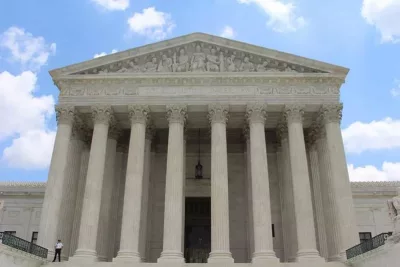
- Originally Published on April 22, 2024
How to File a Defamation Lawsuit in California
When you are the subject of defamatory statements that actively harm your personal or professional reputation, it is important to respond quickly. For residents of The Golden State, knowing how to file a defamation lawsuit in California and its requirements is crucial for protecting your reputation and maximizing your chances of success.
Defamation victims in California should follow these steps to bring a successful defamation claim:
- Determine whether you have a valid claim in California,
- Preserve evidence of the defamation,
- Determine which jurisdiction is proper for your suit,
- Research the procedural requirements for your jurisdiction, and
- Draft, file, and serve the complaint.
This article explores the definition of defamation, libel, and slander under California law. Then, we explain how to prove defamation and file a successful defamation lawsuit in California.
Libel & Slander Under California Law
Defamation is a false statement of fact about you, made to a third party, that damages your or your business’s reputation. Libel and slander are both forms of defamation; libel is written, while slander is spoken.
In this section, we explore the definition of defamation under California law, along with a few examples.
How Does California Define Defamation?
California law distinguishes between spoken defamation (slander) and written defamation (libel). CA Civ. Code §§ 45, 46. Under Section 46 of California’s Civil Code, an individual slanders another when they “orally utter” a claim to a third party in which they:
- Charge another with a crime,
- Allege that they have an “infectious, contagious, or loathsome disease,”
- Injure them in their trade or profession, or
- Impute “impotence or want of chastity” to them.
On the other hand, Section 45 defines libel as publishing a written communication to a third party that “exposes the other person to hatred, contempt, ridicule, or obloquy.” Libel can include any “fixed representation to the eye,” such as pictures, printings, and even effigies.
For further reading, please see our guide, ‘What Are the Grounds For Defamation of Character?’.
Defamation Per Se vs. Defamation Per Quod in California
Defamatory statements can be separated into two categories: defamation per se and defamation per quod.
Per se is a Latin phrase that means “by itself.” Defamation per se is a statement that, on its face, damages an individual’s reputation. When a statement is considered defamatory per se, the plaintiff does not need to prove they suffered “special damages” (damages arising from the defamatory speech) because the damage is presumed due to the severity of the allegation. Examples of defamation per se can include:
- Allegations of criminal conduct;
- Accusations of having an infectious disease; or
- Statements that harm one’s business or trade.
For further reading, please see our comprehensive guide addressing ‘Slander Per Se’.
Per quod is a Latin phrase that means “on the basis of.” Remarks considered defamatory per quod are not defamatory by themselves. However, based on their context, they may be construed as defamatory. In order to sufficiently plead defamation per quod, one must allege “special damages.” In other words, the plaintiff must show how they were concretely harmed by the remarks. Valid special damages can include:
- Being passed over for a job;
- Losing money or business; or
- Losing property or housing.
Is There a False Statement?
Both state statutes require the communication to be false and unprivileged to constitute defamation.
Under California defamation law, a statement containing a false assertion of fact may give rise to a claim for defamation.
For example, the assertion that “Taylor Swift is the best singer ever” does not contain a false assertion of fact, because the statement is subjective (i.e., an opinion). However, the assertion that ‘Tom stole money from X company’, when Tom did not, may be proved to be factually false with evidence.
Was the Statement Unprivileged?
The requirement that statements are “unprivileged” is a more complex concept due to there being different types of ‘privileges’ that plaintiffs must be aware of. For example, in certain settings, such as a courtroom, a person may be “privileged” to make a false statement that harms another person without being liable for defamation.
Further, all statements spoken during a trial are protected by absolute privilege, meaning the speakers are immune from any liability. Absolute privilege applies to statements made in judicial or legislative proceedings or by public officials during their work.
Qualified privilege, on the other hand, applies to speakers who have a moral or legal duty to make the statement. For example, journalists might have qualified privilege when reporting on matters of importance and public interest. For an individual to be shielded by qualified privilege, they must prove that:
- The statement was not defamatory, and
- They did not communicate the statement with malice.
With at Least Negligence
Most civil claims require the plaintiff to prove some level of “intent.” Negligence is the lowest bar and requires the plaintiff to prove that the defendant made the false statement without reasonable care.
The intent bar may be higher depending on the status of the plaintiff. For example, a public figure must prove that the defendant made a false statement about them with “actual malice.”
Types of Damages Available Under California Law
When an injury is proven in civil cases, the court attempts to make the injured party “whole.” Generally, this attempt involves awarding “damages,” or monetary compensation.
The three types of damages a California court can award to a defamation victim include:
- General Damages: Compensation for a person’s reputational harm;
- Special Damages: Compensation for specific injuries caused by the defamation (e.g. loss of business, damage to property, etc.); and
- Exemplary Damages: Punishment for the defendant’s wrongdoing (similar to punitive damages). These damages are awarded based on the court’s discretion.
It is important to remember that damages are not guaranteed in a defamation lawsuit. Awards greatly depend on the factual circumstances underlying the case.
What Are Some Examples of Defamation in California?
Not all defamation cases are clear-cut. For example, it may sometimes be difficult to determine whether a statement is fact or opinion.
In this section, we explore several defamation cases to illustrate what defamation is and is not in California, specifically in the context of facts vs. mere opinion.
Sanders v. Walsh
In Sanders v. Walsh, a California appeals court found that claims published on RipoffReport.com about the defendant constituted defamation, not opinion. The parties in Sanders had a small claims dispute over payment and the alleged return of a wig. Walsh alleged that Sanders had bought the wig and canceled the payment without returning it.
In response, Sanders showed a FedEx letter indicating the wig had been returned to Walsh, but the package was refused. After losing the small claims dispute, Walsh made a lengthy post on a website called RipoffReport.com alleging that Sanders had:
- Used an “unauthorized check” to pay for the wig, and
- Submitted a fraudulent letter from FedEx to small claims court.
The Ripoff Report post prompted a defamation lawsuit. Walsh was also found to be responsible for two reviews made on Yelp.com and MerchantCircle.com accusing Sanders of taking bribes. Walsh asserted that her statements were protected, as they were opinions.
The court thoroughly analyzed the statements and noted that statements of opinion are not actionable unless the opinion “implies a false assertion of fact.” The court also recognized that under California law, the main question is not whether a statement is fact or opinion. Instead, the question is whether a reasonable person “could conclude the published statement declares or implies a provably false assertion of fact.”
The court concluded that Walsh’s statements were not mere opinions and could be construed as false statements of fact. Sanders v. Walsh, 219 Cal. App. 4th 855.
ZL Technologies, Inc v. Does 1-7
In ZL Technologies, Inc. v. Does 1-7, former employees of the plaintiff posted negative reviews on Glassdoor. These reviews alleged that the plaintiff’s business “management lacked experience,” lacked “transparency or accountability for decisions,” and had “very poor mentoring or professional development.”
The court, after analyzing the statements, in their context, found the defendants posted ‘generalized conclusions’ without ‘tying it to specific conduct, or a time and place’, and ‘non actionable opinion’, absent ‘factual assertions’. Thus, the defendants’ statements did not meet the requirements for libel and defamation. ZL Technologies, Inc. v. DOES 1-7, 13 Cal. App. 5th 603.
How to File a Defamation Lawsuit in California
Filing lawsuits requires state-specific knowledge, not only of a state’s laws but also its procedural requirements. In general, however, filing a defamation lawsuit takes several steps:
- Assessing whether you have a valid defamation claim,
- Preserving evidence of your claim,
- Determining in which court or jurisdiction you should file your claim,
- Researching the procedural requirements for your jurisdiction, and
- Drafting, filing, and serving the complaint.
Assessing Your Defamation Claim in California
The first step in any civil matter is determining whether you have a claim. Please see the above section ‘Libel and Slander Under California Law’. Should you meet all of the requirements for a valid defamation claim, it is important to consider any practical defenses a defendant may rely on.
To determine whether you have a valid defamation claim, and any defenses a defendant may have, it is important to consult with an attorney who is familiar with defamation law in your jurisdiction.
Several common defamation defenses and privileges can be raised in a defamation lawsuit, including:
Truth
Like all defamation suits, a Californian defendant can assert the defense of truth. As stated above, a key requirement of a defamation case is that the remark was false. If the defendant can prove the statement was substantially true, there is no longer any defamation.
Opinion
If a statement cannot be proven true or false, it is likely an opinion—and therefore not defamatory. Keep in mind, however, that if the statement contains both opinion and fact may still qualify as defamation if the “facts” are untrue.
Privilege
A defendant can prevail in a defamation case if they can prove their statement was made in a legislative or judicial proceeding, in connection with an issue being reviewed by a legislative body, or in a public forum about a matter of public concern. Keep in mind that “matters of public concern” have been interpreted broadly by California courts.
Fair Report Privilege
Section 47 of California’s Civil Code protects statements individuals make while reporting on a public government proceeding or about a government official in their official duties.
Anti-SLAPP
SLAPP stands for “strategic lawsuit against public participation.” Anti-SLAPP statutes protect an individual’s ability to speak on matters of public concern without fear of being sued by wealthy individuals. California has an exceptionally strong anti-SLAPP statute, so defamation plaintiffs should ensure they have a strong case before moving forward.
Statute of Limitations
In California, defamation has a one-year defamation statute of limitations. In other words, an injured party must file a complaint within one year from when the defamation was written or spoken. California follows the “single publication rule,” meaning that the statute of limitations “clock” starts running the first time a statement is published.
An exception to this rule is if the original poster edited their publication. If a publication is edited, the date on which it was edited is considered the date of publication.
Further, under certain circumstances, a court may apply the discovery rule, which means the statute of limitations does not start running until the plaintiff discovers (or reasonably should have discovered) the defamatory statement. This rule is rarely applied in California, such as in cases when the publication is inherently secret.
Consent
If the statement’s subject consented to its publication, they likely do not have a valid defamation claim. Common types of consent include informed, implied, unanimous, and express consent.
We recommend reading our comprehensive article ‘How Much Does a Defamation Lawsuit Cost?’.
Preserve Evidence of the Defamation
Depending on the nature of the defamation, a plaintiff must prove that the defamatory statements were made.
For spoken defamation (or slander), evidence may be based on testimony from those who heard the statements. For written defamation (or libel), the plaintiff should obtain a copy of the written text or content.
For defamatory statements on social media, it is generally a good idea to preserve screenshots of the content. A defendant could easily delete incriminating posts once they discover the pending lawsuit.
Determine Which Jurisdiction to File Your Suit
Determining jurisdiction can be complicated. A good rule of thumb is to file a lawsuit where the defendant lives or has “sufficient minimum contacts,” such as a business.
Other factors in determining jurisdiction include how much money you seek to recover, as well as where:
- You live,
- Your business operates,
- You experienced injuries due to the defamation,
- Your customers live (if applicable),
- The defendant lives or operates (if you know their identity).
Another jurisdictional question to consider is whether you should file your claim in a federal or a state court. If you are filing a claim based on a violation of California’s defamation statute, you will likely need to file in state court.
Draft, File, & Serve the Complaint
Finally, you must file a complaint to initiate a lawsuit. Like all other states, California requires each of these components to be present in a complaint filed with the court:
The Parties to the Lawsuit
The parties are the plaintiff and defendant. If you are filing the complaint, you would be listed as the plaintiff—and whoever defamed you is the defendant. If you do not know who defamed you, you must include a pseudonym for the anonymous defendant. Plaintiffs typically refer to the defendant as “John Doe” in these cases.
Jurisdiction & Venue
Courts only have jurisdiction over certain parties and scopes of issues. For example, federal courts can generally only hear cases where a federal law is at issue or where the parties of the case are located in different states. It is important to consult with a lawyer to determine which jurisdiction is right for your case.
Factual Allegations
This section of the case details what actually happened, such as who said what, when they said it—and to whom. It is critical to include all the essential facts in a complaint so that every element of your defamation claim is met.
Claims for Relief & Relief Requested
This section addresses how the factual allegations violate a statute or injury under the common law.
You can also tell the court what you want to gain from the lawsuit. Generally, parties request some form of damages—but parties can also request other forms of relief, such as an injunction. For example, if the defamer is posting damaging content about you online, you may want an injunction to remove their harmful posts.
Type of Trial Requested
Parties can choose whether they want a jury to hear their case or whether they would prefer only the judge to hear the case. A trial with a jury is called a “jury trial,” while a trial with only a judge is called a “bench trial.”
For further reading, please see our comprehensive resources ‘Is It Worth Suing For Defamation?’ and ‘How Many Defamation Cases Go to Trial?’.
Legal Resources to Help Navigate Defamation in California
While it is always best to hire an experienced defamation attorney knowledgeable in your state’s defamation law, not everyone can afford to do so. This section lists free and affordable resources for defamation victims—along with alternatives to filing a lawsuit that you may want to consider.
Resources to Address Defamation in California
Filing a lawsuit can be complicated in and of itself—but California’s procedural requirements can make litigation even more complex.
Because Minc Law has dealt with several matters in California, our attorneys are well-versed in the ins and outs of California defamation lawsuit filing requirements. There are also several online resources that can assist in filing a lawsuit in California, including:
“Pro se” Tabs
Many court websites have pages specifically targeted towards litigants representing themselves (“pro se”). These pages offer various resources pro se plaintiffs can use to begin the litigation process.
For example, the U.S. District Court Eastern District of California website offers a resource page where pro se litigants can access forms, filing instructions, and complaint templates.
Legal Aid
Most California cities have legal aid programs, which assist low-income individuals with legal matters. These agencies also point litigants to free local resources.
You can visit these websites to access self-help legal information in California and learn more about where to find affordable legal representation:
We also recommend reading our comprehensive guides explaining how to hire a defamation lawsuit attorney and the top defamation law firms in the United States.
Alternatives to Filing Suit for Defamation in California
Litigation may be expensive and can take a long time to resolve. Therefore, filing a defamation lawsuit should be your last resort—and it is important to consider alternatives to litigation first.
For example, you may be able to reach your goal through alternative actions like:
- Negotiation: A powerful tool that allows parties to reach an agreement that satisfies both parties’ interests.
- Cease and desist letters: Legal correspondence demanding a potential defendant stop a specific behavior or risk being sued. In the context of defamation, a demand would generally be that the defendant take down defamatory online content or cease the defamatory speech.
- Alternative dispute resolutions: These services generally include mediation and arbitration and are offered through the court. These resolutions are typically quicker than a lawsuit, less formal, and much less expensive.
We Can Help You File Suit in California
At Minc Law, we understand how difficult it can be to navigate the ins and outs of filing a defamation lawsuit. We have extensive experience litigating defamation cases in California and across the globe and always strive to put clients at ease.
We successfully help clients assess the strengths and weaknesses of their defamation claim, explore litigation alternatives, and remove defamatory content from the internet.
★★★★★
“We hired Minc and attorney Michael Pelagalli in 2023 to handle a very stressful situation where a competitor used Reddit to spread false information about our patented stretching device, CastleFlexx.com | What made this difficult was this person was also the mediator of the entire / Flexibility group which had approx 1 million Redditors reading it. With some research we found out she was not only a moderator but ALSO owned a cheap plastic band product line amongst other services she likely felt were threatened by our success. Michael was able to get this very difficult person to remove all her threads and comments and it went from page 1 on Google to GONE. It took some time but months are nothing for a brand that plans to be around for decades. Thank you Michael and Team Minc. This really helped our business rebound and we owe it to ya’ll.Dan C.
February 27, 2024
If you would like to explore your legal options to address defamation in California, reach out to schedule your initial no-obligation consultation by calling us at (216) 373-7706 or filling out our online contact form.
This page has been peer-reviewed, fact-checked, and edited by qualified attorneys to ensure substantive accuracy and coverage.




